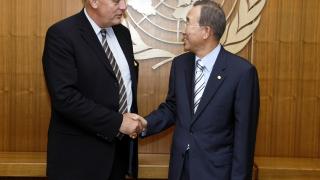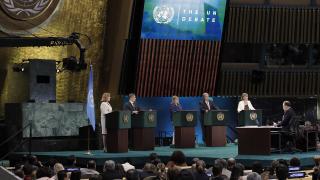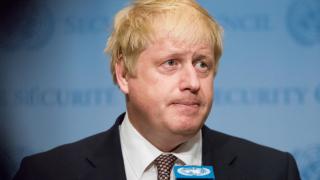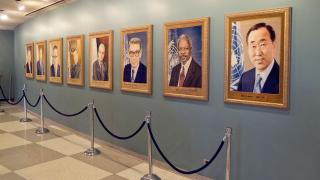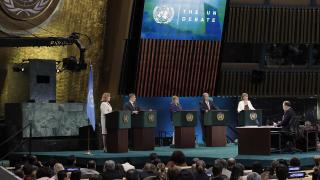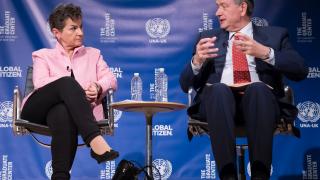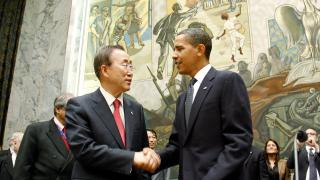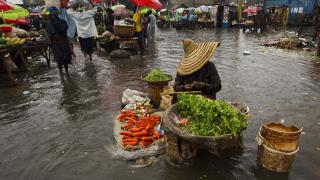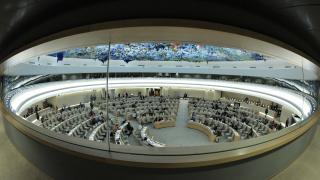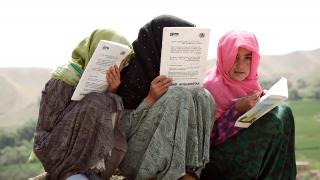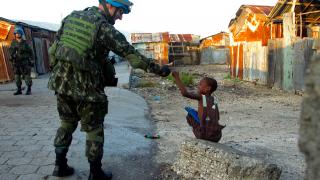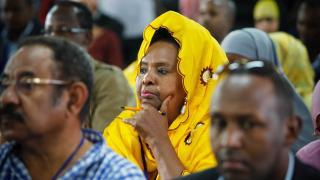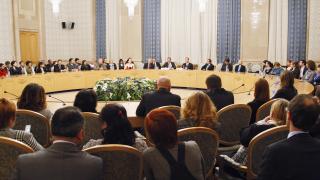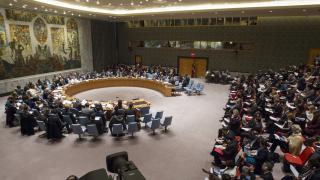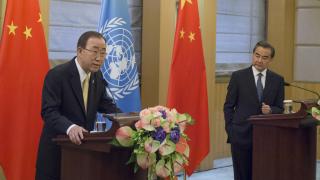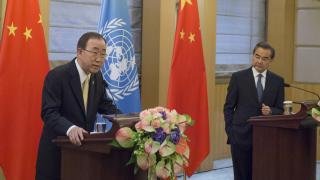
In 1947, China redrew its maritime boundaries to claim approximately 3.5 million square kilometres of ocean – over 90 per cent of the South China Sea. These included international waters and areas claimed by Vietnam, Taiwan, Malaysia, Brunei, the Philippines and Japan. In the years since, it has enforced its alleged ownership with fishing, mining, construction and military activities in the disputed waters, often clashing with local fishermen, traders and armed forces in the process. With tensions between nations increasing, it is likely this dispute will pose a significant challenge for the next UN Secretary-General.
In July 2016, after decades of conflict and dozens of deaths, the UN tribunal in The Hague ruled that China has no historical right to the area and that it has extended its reach beyond the permit of international law, infringing on the sovereignty of other nations.
The ruling is a victory for the Philippines, which brought the case, and for its supporters, including the US, the UK, and France, but there is no guarantee that China will abide by the decision. The Chinese Government refused to recognise the jurisdiction of the tribunal and did not participate in the arbitration. Following the ruling, Chinese Foreign Minister Wang Yi responded, “Chinese people will not accept the result and all people around the world who uphold justice will not accept the result.” The decision, therefore, marks an escalation in a decades-long dispute directly involving the United Nations and putting permanent members of its Security Council at loggerheads.
It would not take much for the dispute to escalate into a fully-militarised conflict. Over the past twelve months, the US has deployed military planes and warships to protect trade routes in self-described “freedom of navigation” operations. The French Defence Minister has called for European navies to have a “regular and visible presence” in the region. In August 2016, Vietnam placed rocket launchers on disputed islands. China itself has run naval patrols, imposed an air-defence identification zone and created 2,000 acres of strategically-placed artificial islands with alarming military capabilities. War is a very real and very grim possibility.
The area in contention is home to large-scale fisheries and oil reserves and approximately $4.5 trillion in trade passes through the South China Sea every year. Conflict would jeopardise not only one of the world’s busiest maritime trade routes, but also the unique tropical ecosystem which lies beneath it. In its decision, the UN tribunal lamented the irreversible damage already done to coral reefs by Chinese military activities.
Beijing has the support of Russia and Saudi Arabia, but the Philippines has been backed by France, the UK and the United States. With such major players in the crisis holding permanent seats – and vetoes – the Security Council is clearly ill-suited as a forum for resolving the conflict. Efforts to bring the matter before the Council can easily be stymied and any proposed peacebuilding resolutions are likely to be quashed by the nations involved.
If the UN is to play any part in resolving the dispute, it must fall to the Secretary-General to engage in diplomatic intervention and ensure that a peaceful agreement is reached.
There is strong precedent for his or her involvement; Secretaries-General have historically played a powerful role in de-escalating conflict. Dag Hammarskjöld was responsible for reaching a ceasefire in the Suez Canal. U Thant facilitated mediation between US President Kennedy and the Soviet Union’s premier, Nikita Khrushchev, during the Cuban Missile crisis. Javier Pérez de Cuéllar personally negotiated a ceasefire in the Iran-Iraq war and intervened in negotiations in Western Sahara, Namibia and in the Falklands War.
The conflict in the South China Sea will be a defining challenge for the next Secretary-General. It is a conflict which endangers the UN itself – war between the five permanent members of the Security Council would prevent international cooperation, curb the organisation’s development and peacekeeping programmes and undermine the legitimacy of the United Nations as a whole. On the other hand, a peaceful, diplomatic resolution would strengthen the institution.
This is why it is so important to select the best possible candidate – a leader who is strong, active and independent, with sound diplomatic judgment. If the Security Council is unwilling or unable to address the escalating conflict, the Secretary-General must step in. She or he must be the one to mediate between states and to fulfil the primary purpose of the United Nations – the maintenance of international peace and security.
Photo: Secretary-General Ban Ki-moon (left) addresses a joint press conference with Wang Yi, Minister for Foreign Affairs of the People’s Republic of China. Copyright: UN Photo/Eskinder Debebe



